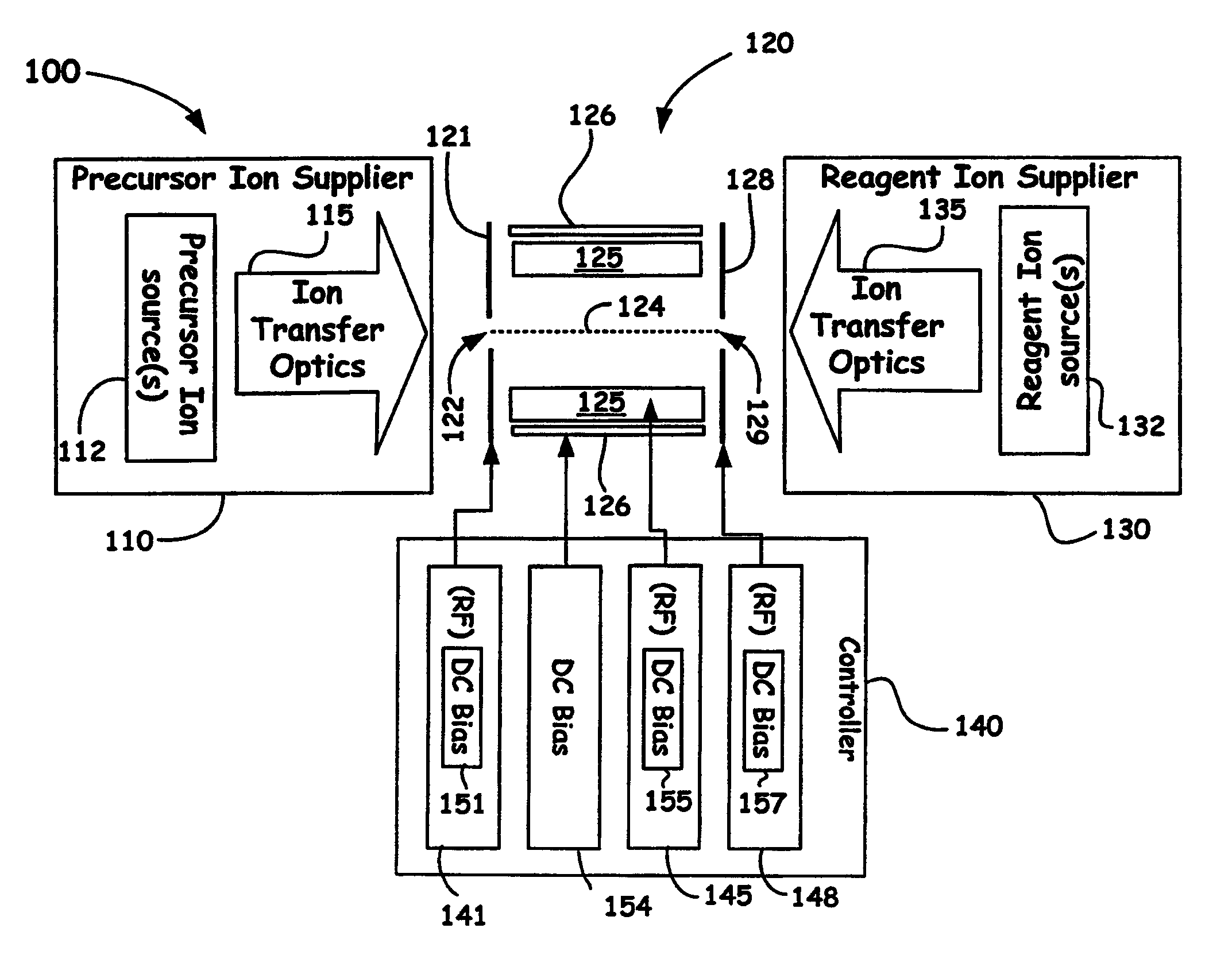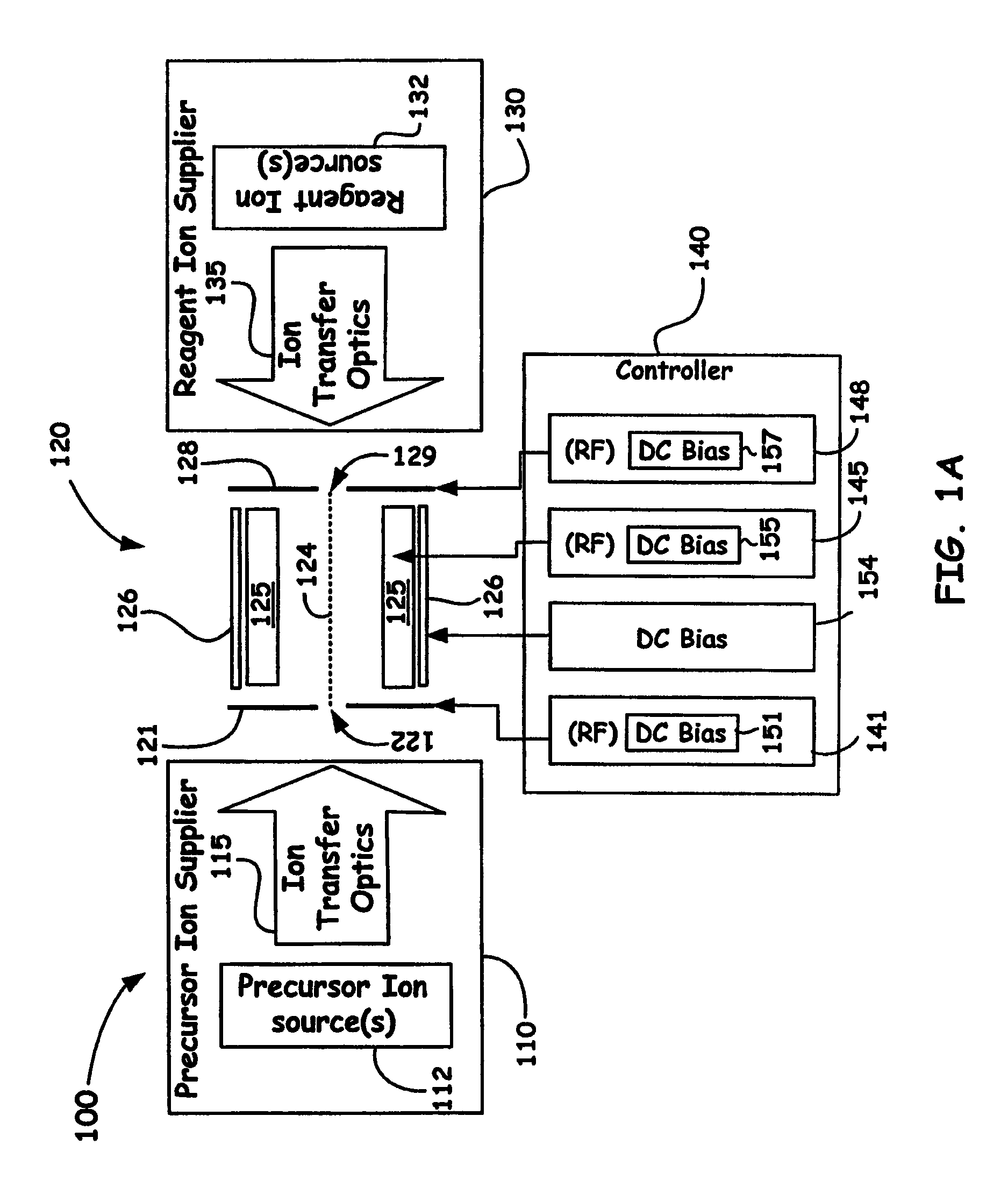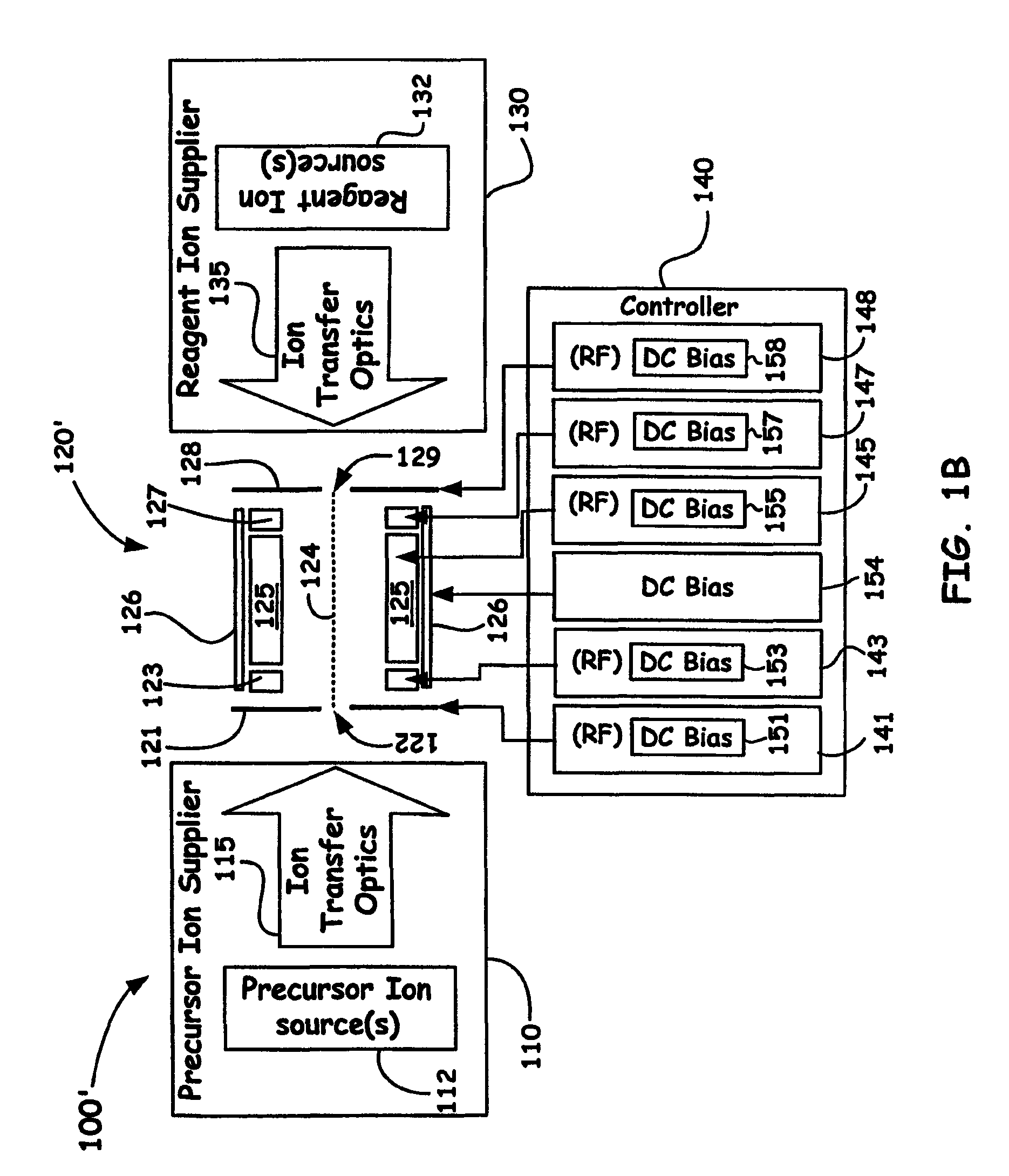Dual ion trapping for ion/ion reactions in a linear RF multipole trap with an additional DC gradient
a multi-pole trap and ion/ion reaction technology, applied in the field of mass spectrometry, can solve the problems of limited space charge capacity, difficult to carry out ecd processes in an ion trap, and difficult to analyze organic compounds
- Summary
- Abstract
- Description
- Claims
- Application Information
AI Technical Summary
Benefits of technology
Problems solved by technology
Method used
Image
Examples
example applied
Voltages and Potentials
[0071]FIG. 2B, FIG. 2C, FIG. 2C′, and FIG. 2C″schematically illustrate a non-limiting example embodiment using example applied voltages and resultant potentials to illustrate a possible injection / reaction and subsequent ejection modes of operation of the present invention. As shown in FIG. 2B, an example 2D linear trap of the present invention includes a device having a length L of about 100 mm with r0 given as 4 mm (as also provided in Table 1 of FIG. 2B). Also shown are denoted applied potentials, as denoted by U1, U2, U3, and U4 at approximately the positions shown along the device. Table 1 gives the applied voltages along the length of the device to provide for such potentials. Below the example 2D linear trap as shown in FIG. 2B are three plots (shown not to scale) FIG. 2C, FIG. 2C′, and FIG. 2C″ of applied voltage profiles V1, V2, V3, and V4 that result in the applied potentials configured for injection (plot shown in FIG. 2C) and ejection (FIG. 2C′, and...
PUM
 Login to View More
Login to View More Abstract
Description
Claims
Application Information
 Login to View More
Login to View More - R&D
- Intellectual Property
- Life Sciences
- Materials
- Tech Scout
- Unparalleled Data Quality
- Higher Quality Content
- 60% Fewer Hallucinations
Browse by: Latest US Patents, China's latest patents, Technical Efficacy Thesaurus, Application Domain, Technology Topic, Popular Technical Reports.
© 2025 PatSnap. All rights reserved.Legal|Privacy policy|Modern Slavery Act Transparency Statement|Sitemap|About US| Contact US: help@patsnap.com



